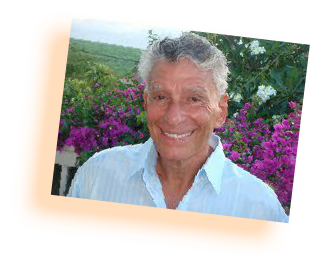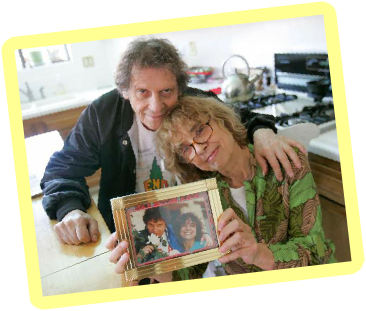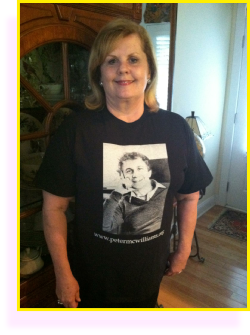

.org

Remembering his friend & co-author
It has been 10 years since I lost my incredibly remarkable friend, co-author and publisher Peter McWilliams. I miss him more than ever for his humor, creativity, commitment and love. Peter was a freedom fighter who would back down to no one and no oppressive authority.
He could master poetry, publishing, computer-training, self-help, treating depression, lawyering and so much more -- and succeed brilliantly. He adored his mother Mary, who was also his angel. His books and legacy will long live on to support and educate millions of people. Peter also lives on in my heart and all those blogging who care so deeply for him. All blessing as well to Julia for her selfless service to his memory. Peter, we love you!
Peace,
Hari
Governor Gary Johnson Libertarian

“I’m a fan of Peter McWilliams”
Judge Jim Gray (coming soon)
Richard Carson: Working for Peter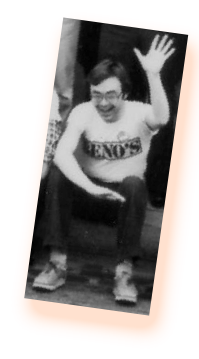
I was one of three people employed by Peter McWilliams during April 1990 to do desktop publishing. He had finished writing "Life 101" and was at the point of preparing the manuscript for publication.
At the time I was familiar only with "The Word Processing Book," but that was enough to make me interested in meeting him and working for him. Furthermore, the job involved laying out WordStar files in Ventura Publisher, which was exactly what I was already doing at my regular job, except that there I was not looking at future New York Times bestsellers.
The work would be done during the evening in the office space of his home in the Hollywood Hills. (Because the house was on a hill, it had multiple levels; the entrance was on the top level where the office was, and his living area, which I got to see briefly, was below.)
I behaved rather awkwardly during our first meeting, even though he was ready to give me the job and I was interested. I was secretly having doubts about my ability to perform two jobs because I had recent health problems from which I was only beginning to recover, and was less willing to gamble on my job security than before I was married.
Later that day Peter telephoned me and asked me point blank, "Do you want this job?" because I obviously had shown some apprehension. Well, of course I wanted it, and from then on things went smoothly.
For the next month I moonlighted, leaving my regular job at 6pm, going home just long enough to have dinner, and then driving from West Los Angeles to Hollywood, where I would work until midnight. I would get to sleep around 1 or 2 am and go back to my regular full-time job the next day. For me at the time this was a tough schedule, but I knew it would last only a month and was worth it.
I was in Peter's home office with John and Jack Moran, each of us at separate computers working on different chapters simultaneously. It gave me great pleasure to be able to work with text that needed no corrections.
Occasionally Peter would resurface from his home below to see how we were doing and give feedback. All three of us ended up being given credit for desktop publishing on the title page of the book.
Paul Krassner :McWilliams Remembered
Peter McWilliams has been dead for over a decade. I don't believe in an afterlife, but his legacy as a prolific author serves as one. Countless readers of his work continue to be awakened and influenced by his information and insights. With empathy and wit, he helped close the gap between the value systems of mainstream society and the counterculture.
For those of us who knew him, the loss had an extra dimension. He was a generous friend, gifting me in 1984 with my first computer. My anthology, Pot Stories For the Soul, published by HIGH TIMES, began: “This book is dedicated to Peter McWilliams, whose creative and compassionate leadership in the medical marijuana movement has continued to be inspiring and invigorating.”
He was so pleased that the collection was the winner of the Firecracker Alternative Book Award and also became a Quality Paperback Book Club selection. And when attorneys for the authors of Chicken Soup For the Soul sent a warning “cease and desist” letter, I recall his uproarious laughter when I observed, "Even though theologians and scientists alike don't know where the soul resides, it can be copyrighted."
My wife Nancy and I used to drive up to Peter's home at the top of a hill in Los Angeles, then order Chinese food and watch The Daily Show with Jon Stewart on his gigantic TV screen. We attended his courtroom appearances and perceived the way ambitious, puritan prosecutors were prone to use him as a stepping stone to advance their own careers.
At an anti-prohibition rally on the lawn of the Federal Building in Los Angeles, I introduced him to Dennis Peron, who became co-author of Prop. 215 -- the "Compassionate Use Act" of 1996 -- a California law legalizing medical use of cannabis. Peter suffered from AIDS and cancer.
“Something that a lot of people don’t realize,” he told me, “is that when you smoke marijuana regularly -- several times a day -- it loses its euphoric effect. The medical benefits continue–-relief of nausea, pain (physical or emotional), spasticity, excessive eye pressure (glaucoma) and so on -- but the euphoric effects go away. While I was using marijuana to treat my nausea, I can’t tell you how much I missed getting high.
“Although I’d smoke it several times a day, the average high school student was getting high more times a month than I was. That’s because after the first month, I never got high, and I really enjoy marijuana’s high. Simply put, recreational marijuana you use to get high; medical marijuana you use to get by.”
When Peter got arrested -- and was forced to stop taking his medicine -- he hoped to be sentenced to home detention with an ankle bracelet for electronic monitoring, while simultaneously trying to prepare himself for five years’ incarceration in a federal prison. Two months before he was due to be sentenced, he was found dead in his bathtub. He had died from asphyxiation, choking to death on his own vomit.
I told this to Ken Kesey, and, with his uncanny ability to cross-fertilize compassion with irreverence, he responded, “Well, I would rather choke on my own vomit than on somebody else’s.”
That year, at the National Libertarian Party convention -- where presidential candidate Harry Browne came out firmly for decriminalization of marijuana -- Peter became the posthumous winner of their Champion of Liberty Award. He remains in my life as a touchstone of integrity and a practitioner of enthusiasm.
During the last year of his life, we began collaborating on a screenplay about cyber war, his concept of a movie which has turned out to be prescient, as indicated by a recently published book, Cyber War: The Next Threat to National Security and What to Do About It, by Richard Clarke, former Special Advisor to the President on cyber security. I’m sure that Peter’s ashes swirled with delight in his urn when the truth behind international charades and criminality was revealed by WikiLeaks.
Sherry Yates: For Peter

Having lived 54 years, I've experienced many highs and lows. Coming of age in the Seventies was a time when many of my peers were experimenting with all the new mind altering fads the Seventies introduced. Not wanting to be an outcast; I too experimented. Fortunately I found confronting life substance free much more rewarding and never succumbed to any habits or addictions.
Life has not spared me heartache; quite the opposite and my solace has been reading and writing as an outlet and or an expression of pain. Peter's work has inspired me in times that were difficult and enlightened me in times of joy. I have loved (deeply) and been loved, and like most I have lost in love. The lost loves (love) is to this day is the deepest cut and remains very much alive in my heart and soul.
I often refer to Peter's sonnet, "I shall miss loving you" and keep waiting for the day I will miss, missing loving him. It's been so many years now, I've come to believe that day will never arrive, and if it does how empty I would feel. Because up to now missing him is a big part of who I am and in a strange sort of way, a connection undefined. So connected It's become spiritual. Life changes, love does not, right, Mrs. McWilliams?
With Love, Gratitude and Admiration of Peter's work,
Sherry Yates-
Dave Wilkinson: Peter’s Business if He Does
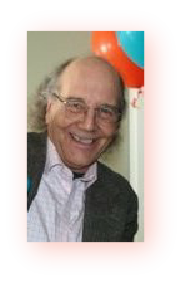
I've really read only one of his books, but it had a great influence on my life. Ain't Nobody's Business if You Do came out in the same year that Starks, Maine made the first official vote to legalize marijuana in almost twenty years, by passing town ordinances I had written.
As I became the focus of media attention, Peter's bold s tance and solid research
gave me strength. He helped me to see the issues in a wider context.
tance and solid research
gave me strength. He helped me to see the issues in a wider context.
I wrote to him with a question and Peter sent back a warm, personal, hand-written note that was brief but inspiring.
Later, as I followed his story through the travesty of his martyrdom, Peter became for me a true saint for sanity. By denying his medicine, the state contributed to, even caused his premature death.
Now I realize that Peter McWilliams is one of those who will never die, whose spirit passes on and ignites new generations with the fire of his passion.
Love and peace, Dave
Witchgrass: A Pipe Dream by Dave, IS available on Amazon.com Dave tells me Peter inspired his book :-
Kevin 'Bynk' Bingham: Santa Rosa Sunshine

In 1990 I worked in a little bookstore in Santa Rosa, California. I was in my early 20s at the time, and is often the case of somebody in their 20s, I was looking for meaning and direction in my life. Sci-Fi was king for me, but the
self- help section was my second home.
This was the era of the "Men's Movement" with Sam Keen and
Robert Bly and Joseph Campbell's "Power of Myth" and "Flight of the Wild Gander" and such books as "King, Warrior, Magician, Lover". Yup, I read them all.
But then one day, a weird little blue book entered our bookstore. And it was a reader's copy. A freebie! It was titled Life 101. On its innocuous cover was the subtitle, Everything We Wish We Had Learned About Life In School -- But Didn't. That sounded cool. Little did I know how powerful this book would be.
Inside was an easy reading format filled with fun quotes and matter of fact chapters and sections with little fluff. This was the book that I had been looking for!
It taught me the power of positive thinking. (I later learned that I could not afford the luxury of a negative thought.) And a safe place where I could go
and review and change things. And many other life changing things.
Well, twenty years later, I still think of this book every so often, and sometimes give free copies away to those who need one.
Peter, you are no longer with us in body, but your legacy and words live on. You have left an everlasting impression in my life. And that is more than some of us get.
Steve Elliott

Like he has touched the lives of so many others, Peter McWilliams inspired me with his bravery and willingness to stand up for what is right, and his efforts to help others. I believe, as did Peter, that people should have the freedom to pursue the path they choose. Choices we make as individuals should be our right, and this simple but often forgotten precept is the core of Peter’s philosophy.
Peter didn’t just talk the talk; he walked the walk. He took a personal stand in favor of California’s 1996 medical marijuana law, and took the voters at their word when they legalized medicinal use of cannabis. Unfortunately, Drug Enforcement Administration agents hounded Peter to his death for growing his own medicinal garden to treat his cancer and AIDS. But they weren't able to extinguish Peter’s light. He shines more brightly now than ever before.
Peter McWilliams has been by my side for twenty years. His book. How to Survive the Loss of a Love helped me survive when my husband announced that he did not want to be with me and the children anymore, after 14 years together in ministry.
The practical steps of the grief process were spelled out poignantly and spoke to my pain in a way that nothing else did. I was inspired to write my own rhymes (and non-rhymes) to be able to specifically identify my hurt and then to tend to it, and eventually heal (forgiving, but not forgotten). To quote Peter, the process sometimes "wasn't just a drain...it was a sewer."
Today, I am a counselor. When clients come to me in that familiar place of raw emotion, knowing nothing but the confusion of rejection, I lead them hand in hand to Peter's work, so that their healing may begin. I am extremely grateful for Peter's sensitivity and his help in healing my heart from a trainwreck of rejection.
Thank you for continuing his legacy of love.
Warmly,
Jennifer Sawyer, Licensed Professional Counselor
Darrin Noble 
I had heard his name earlier in my life but I just let it go without seeing who he was and what he has meant to all that I am. Without him I do believe this world would be a much different, harsher place to be. It's amazing to me the gentle ripples of ones life that stretch out to so many different types of people whom all find similarities unto themselves within another's life. My wife has always, since we were kids, pushed me to put together a collection of my poetry and get it published. I always tilde her maybe someday and that people like me don't write good enough poetry to get published. But then there's Peter, whom like myself was a poet who lived in excruciating pain, I will never compare my challenge in life to his fore his walls were much higher and yet he cleared them, but not always with the first try and thats what I find as the biggest similarity, not the pain nor poetry, but the fact that he never have up that's the story that means most to me. He was a great man who did so much for so many people in an effort to simply live the life he wanted to live. It's a shame on our govt for not letting him do so. It's a shame on our govt that they keep not allowing people to do so. When will we as a society be able to turn the minds of our elected officials who keep us drowning in lies and have a hand in shaping the future of this once great nation? Is this but a poets dream or what will be written in the pages of history?
Daniel Dean M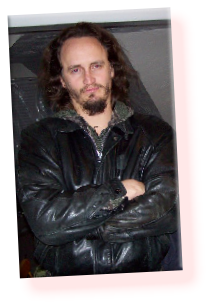 cGuire
cGuire
Peter's book Ain't Nobody's Business If You Do informed my political philosophy as a young adult, stimulated my thinking, encouraged my future activism and provoked a deep moral objection to laws limiting the freedom of consenting adults.
Peter was a blessing to all he touched and his work continues to shake the foundations of tradition that keep would be free Americans oppressed and kept down. Peter teaches us to question authority and to be vigilant and courageous in the face of unjust laws. He was a great American and I am still shocked and outraged by the way the U.S. Federal government treated him towards the end of his life, arguably directly bringing about his death by imprisoning him mainly for his courage to stand up and voice his opposition to tyranny, denying him his life saving choice of HIV and Cancer medicine, blessed cannabis. May his spirit shine down upon us all as he joins the stars in the sky we look up to to guide us. Peter, may you not rest in peace but continue to agitate with the movement you helped grow, only resting when freedom for all is attained, slavery and tyranny abolished. I wish I could have met you in the flesh and called you a friend. Love, Daniel
Marc Emery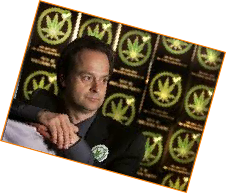

Peter's book Ain't Nobody's Business If You Do is one of the most important works on the immoral imposition of laws that punish normal human behaviour, it is a joy to read, and I discovered something new to add to my arsenal of knowledge
on every page.
Jennifer Brown Banks: A Trib ute to Peter McWilliams
ute to Peter McWilliams
He was to to poetry what Picasso was to art. For me, his eloquence was unequaled. Here was a man who had experienced every emotion that the heart had the capacity to feel, and unshamefully shared it with the world. He was a “hopeless romantic”. And yet he was a hopeful romantic.
Click here for more from Jennifer.
Her credits: “I am a professional, veteran freelance writer and Blogger
with over 500 publishing credits both online and in print publications. I author several relationship columns and produce feature pieces on an array of topics. Other hats that I wear include creative writing instructor and prolific poet. I also serve on several advisory boards. I am the former Senior Editor of Mahogany Magazine.”
Charlie Bechtold: Good Strange Things
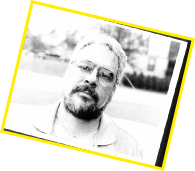
I still haven't seen the covers to 'Love the Hard Stuff' or 'I Have Loved' --poetry of PAM's I found in the '70s that practically voiced my feelings then, word for word.
A lot of strange things were happening to me back then --'good' strange. I'd walk into a neighbor's house and he'd hand me Leon Russel's 'Asylum Choir' album without my asking for it (somehow knew I wanted it) or I'd go to another friend's house and he's moving, has all his stuff in boxes. I didn't know that. He hands me a copy of 'The Aquarian Gospel of Jesus The Christ' without me asking (somehow
knew I wanted it but I didn't even know he HAD it and neither of us were Jesus freaks); just 'strange' things. But so many of these things kept happening they felt like 'normal.'
I haunted quite a few used book stores --can't remember where or which one it
was I found those two volumes by Peter A. McWilliams (PAM) but they were cheap and I bought them. They were already pretty well worn paperbacks. I'd just gone through a separation from a significant other (probably my first wife --pardon my memory: I'm 'old' now) and when I nosed into these books, not only the poetry was good but I had to look around wondering 'who' was looking into my LIFE and grabbing my thoughts --it was that weird, like everything he was saying in both books described what I was going through and how I'd felt --even the 'romantic' expression; it was Crazy! It was real. I calmed down, shook my head, and knew I wasn't entirely alone, at least. So something else 'strange' good might happen.
Sure enough, plenty of them (those strange 'good' things) did happen, too.
I began to have enough yen to fetch 'new' hardbound volumes and have snapped up quite a few of PAM's. I'll confess I've only read trough some of them but they're like icing on the cake and reassuring just having. I'm only now catching up on my reading. Going through some tough times --pawned my TV (don't care: don't feel 'sorry' for me) right now, as sort of one of the 'lesson opportunities' PAM describes. I boldly go to where No Man has gone before: smack on in to My Future. It isn't so scary as it might have been without PAM. Now, would I be talking future in past tense without him? I think not.
Thanks for this great idea. I think I've said my say. Now if Julia can get it onto her page, fantastic. I loaned those paperbacks to someone (knew I'd never see them again) who didn't know I had them or even that he wanted them but I guarantee he knows that now or at least he did shortly after 'back when.' Strange 'good' things and good 'strange' things just keep on happening like R.Crumb's truckers keep on
truckin.’ Like editors will always be editing even on Wake Island.
Peter McWilliams was a very
conscious and introspective man
capable of opening eyes and hearts
with his simplistic manner of touching and truthful prose mostly related to the universal contexts of Love.
If only there were million more like him.
Bob Stevens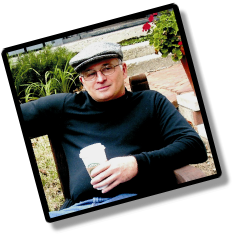
I just appreciate that Peter's life's work is being kept available and with it that
his ways of looking at and seeking understanding of living life are promoted. I never
got to meet or speak wit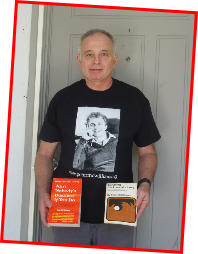 h him in person but have much referenced, well worn and tattered
copies of "Surviving the Loss of a Love," Ain't Nobody's Business if You Do and How
to Heal Depression. The SJW (St. John’s Wort) ordering info there led to my first
phone conversation with Mary, the sad news of what had happened and then a heart
warming conversation with a perfect stranger about a wonderful son.
h him in person but have much referenced, well worn and tattered
copies of "Surviving the Loss of a Love," Ain't Nobody's Business if You Do and How
to Heal Depression. The SJW (St. John’s Wort) ordering info there led to my first
phone conversation with Mary, the sad news of what had happened and then a heart
warming conversation with a perfect stranger about a wonderful son.
Peter McWilliams' book, Ain't Nobody's Business If You Do was my introduction to libertarian thought. I thought at the time that I was reading a book about marijuana, but I was really reading a book about liberty, about the fact that nobody has the authority to forbid you to do anything that doesn't directly harm a non-consenting other, no matter how many people vote for it. I first read "Ain't" in 1999 or 2000, and it was all uphill from there, to my current Agorist view of the world (there's no government like no government).
Bill St Clair
I never met Peter, but I followed his story on the web. I listened to his speech
to the Libertarian Party convention. I remember how smoking marijuana w as helping
him to keep his AIDS medicine down, and allowing it to work, very well. I remember
when they arrested him for taking his legal-in-California medicine, and wouldn't
allow him to mention that fact at his federal trial. I remember when he put up his
mother's house as collateral for his bail money. Feeling that he couldn't risk losing
her house, he stopped using marijuana. I remember him saying that he had found a
way to fight away the nausea, which the marijuana had formerly erased completely.
And I remember when he was found dead in his bathtub, choked on his own vomit, effectively
murdered by federal judge George King. That was for me a very sad and angry day.
So I continue to work for a day when government agents will keep their grubby mitts
out of what ain't nobody's business.
as helping
him to keep his AIDS medicine down, and allowing it to work, very well. I remember
when they arrested him for taking his legal-in-California medicine, and wouldn't
allow him to mention that fact at his federal trial. I remember when he put up his
mother's house as collateral for his bail money. Feeling that he couldn't risk losing
her house, he stopped using marijuana. I remember him saying that he had found a
way to fight away the nausea, which the marijuana had formerly erased completely.
And I remember when he was found dead in his bathtub, choked on his own vomit, effectively
murdered by federal judge George King. That was for me a very sad and angry day.
So I continue to work for a day when government agents will keep their grubby mitts
out of what ain't nobody's business.
It is hard to be made fun of or pointed and laughed at, and recognize that the person doing this is really in need of help. I have learned that though and a big help in being able to learn that was reading a book called Life 101 by Peter McWilliams.
In Life 101, McWilliams talks about how a physical difference like being obese can be a master teacher. In a sense you carry your classroom with you. A physical difference places you outside of what is considered normal and you often get to see people at their worst, and because of these experiences you gain wisdom. It’s quite a way to look at life. I feel that that I want to learn something different now… I am ready to move on to the next phase of my study
Michael Jirak: My Peter McWillia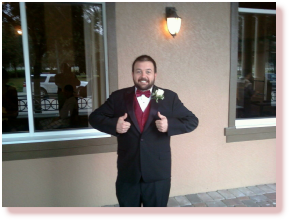 ms Experience
ms Experience
When I was younger, say 20 or so, I was at a crossroads. What to do with my life? I had narrowed my career choices down to Law Enforcement, or something in the culinary field. Law Enforcement was a-callin, because the pay is roughly the same (starting out), great benefits, and definitely not least, I could make a positive difference in my community.
I had been reading profusely - mainly culinary works, and cookbooks, honing my passion for cooking. But Law Enforcement was always there in my mind. I had a somewhat secret ambition to become an FBI agent. If you are going to be a bear, be a Grizzly, right? And as far as the good that could be done, it seemed that I could do a great deal more on a federal level. Can you imagine how gratifying it would be to capture guys on the Most Wanted list? Serial killers, bank robbers, and drug kingpins. Awesome.
Then my girlfriend recommended a book to me. I am always interested in philosophy works, particularly of the political or socio-economic stripe. I am quite liberal in my views, so I’m always interested in important things which affect my life and the general welfare of the country as a whole. When the book is good, I will utterly get lost in it. Ha. Did I.
The book that she recommended was Ain’t Nobody’s Business If You Do: The Absurdity Of Consensual Crimes In A Free Society by Mr. Peter McWilliams, and it literally changed my life completely. It took Law Enforcement off the table. How, you may ask?
First, the War On Drugs is an enormous lie which abrogates the Bill Of Rights, the stated mandate of Law Enforcement as a whole, and the basic civil rights of every man, woman, and child in America. In order to get anywhere, career wise, in Law Enforcement, you’ve got to go through “Narcotics”. Why? Because the fines and court costs associated with “Narcotics” is the lifeblood of Law Enforcement in the United States. Roughly half of the U.S. prison population is there because of drugs. We live in a capitalist system. Money runs everything. Drugs, and their users, are a cash cow.
The main thing that struck me about this book was the way he attacks the issue of drug prohibition from every conceivable angle. I’d already had my misgivings about that particular aspect of cop stuff, and this book cemented and amplified those. How could I sleep at night, having put somebody in jail, and taking their freedom away, no matter how temporarily, over some weed in their pocket? Answer- I couldn’t. There was simply no way I could feel good about that. Whatever defense the rookie or veteran cop employs, he’s covered it already. And that’s not all.
He also covers prostitution and gambling, or as the Police call it, “Vice”. Again, it’s just adults engaging in activities which, potentially, can only harm those partaking in them of their own free will. Making them illegal is counter-productive to individual autonomy and freedom in a “free” society. If you are judgmental of such activities, prepare to have your eyes opened wide, if and when you read this book. (And I very sincerely hope that you do.)
So I pursued the culinary route. I wish I could have cooked for Peter. Oh what a feast Id’ve laid out for him, in return for the intellectual feast he treated me to. The money isn’t great, and I work like a dog, but I can sleep at night. I don’t know how cops and politicians do, but I hope it’s badly. Read Ain’t Nobody’s Business If You Do and tell me you disagree.
David Shaw
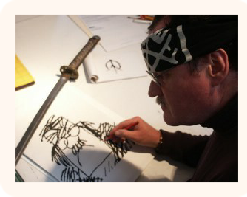
I first encountered Peter McWilliams’s writing in the late 1980s. My work had dwindled
to a trickle as a result of my refusal to jump aboard the technology train that roared
in round about 1988. I chose instead to follo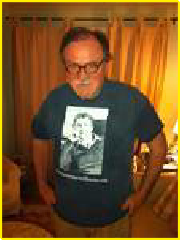 w my parallel career as an illustrator
and let the design side go for a slide. And I decided to do a lot of reading. I probably
chanced upon LIFE 101 in a local branch of the Toronto Public Library. Loved the
way he interleaved the quotes of others with his own writing. I read several other
of his books in that series and eventually stumbled upon LIFE 102 … a book which
made me extremely angry that someone (John-Roger) could treat a fellow traveler (Peter)
as he had done. Eventually in 1999 I decided to get a computer and make a go of it
again. I still have my copy of YOU CAN’T AFFORD THE LUXURY OF A NEGATIVE THOUGHT
which I still read excerpts from on a semi-regular basis. Peter Williams is one of
the people who helped me make it through the 1990s in one piece.
w my parallel career as an illustrator
and let the design side go for a slide. And I decided to do a lot of reading. I probably
chanced upon LIFE 101 in a local branch of the Toronto Public Library. Loved the
way he interleaved the quotes of others with his own writing. I read several other
of his books in that series and eventually stumbled upon LIFE 102 … a book which
made me extremely angry that someone (John-Roger) could treat a fellow traveler (Peter)
as he had done. Eventually in 1999 I decided to get a computer and make a go of it
again. I still have my copy of YOU CAN’T AFFORD THE LUXURY OF A NEGATIVE THOUGHT
which I still read excerpts from on a semi-regular basis. Peter Williams is one of
the people who helped me make it through the 1990s in one piece.
Mark Draughn:
Peter McWilliams, Ten Years Gone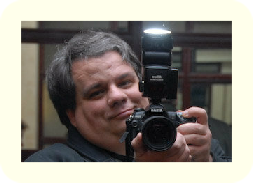
Nick Gillespie notes that Peter McWilliams died ten years ago today. McWilliams was a resister of the War On Drugs. He was also one of its casualties.
McWilliams was very sick with AIDS and cancer, and the medicines he used made him nauseated, which he was able to ameliorate by smoking marijuana. The DEA charged McWilliams with various crimes in connection with a medical marijuana operation. Forbidden by the judge from mentioning his medical condition in court, he was forced to plead guilty and hope for leniency. While out on $250,000 bond for sentencing, and refraining from using marijuana as a condition of the bond secured by his mother's house, he apparently vomited and choked to death.
I only know of McWilliams through his amazing book, Ain't Nobody's Business If You Do: The Absurdity of Consensual Crimes in a Free Country. It's a passionate cry for freedom, the simple human freedom to do what we want as long as no one else gets hurt. Go ahead and click the link. That's not an Amazon page, that's the entire book, posted online for free the way McWilliams wanted it.
This book has been a huge influence on my personal moral philosophy. I had already come to an intellectual conclusion that things like the War on Drugs were wrong, but I hadn't really internalized the idea. Then I read a section in Ain't Nobody's Business If You Do where McWilliams describes getting a ticket for a traffic violation and later getting busted for smoking marijuana. He points out that the traffic violation presented a genuine danger to his fellow human beings, but using drugs harmed no one other than perhaps the user, so despite what the cops and the legislature and almost everyone thought, the traffic violation was the greater crime. In fact, using drugs was no crime at all. I realized that this crazy idea was something I could believe. And it changed everything.
The other thing I remember about McWillaims is his astonishment at the types of people who fought on the dark side:
I write these things and feel myself in mortal combat with a gnarly monster; then I remember the human faces of the kind people who tried to make me comfortable with small talk as they went through my belongings as neatly as they could. Then I remember, painfully, that the War on Drugs is a war fought by decent Americans against other decent Americans, and these people rifling through my belongings really were America's best -- bright young people willing to die for their country in covert action. It takes a special kind of person for that, and every Republic must have a generous number of them in order to survive.
But instead of our best and our brightest being trained to hunt down terrorist bombs or child abductors -- to mention but two useful examples -- our misguided government is using all that talent to harass and arrest Blacks, Hispanics, the poor, and the sick -- the casualties in the War on Drugs, the ones that, to quote Leonard Cohen again, "sank beneath your wisdom like a stone." It is the heart of the evil of a prohibition law in a free country. After all, picking on someone with AIDS and cancer is a little redundant, don't you think?
On the way out, one of the DEA agents said, "Have a nice day." I believe the comment was sincere.
I never know what to make of that. Oh, I understand what McWilliams was saying, and I think it's probably true. It's a mistake to think these people are stupid, and it's probably unhelpful to think of them as evil. But sometimes that just makes it all the more hopeless: How can these "decent Americans" not understand that they are hurting people for no reason?
Peter's gone now, but in his short time on earth he influenced a lot of people, and his ideals live on in so many of us. I wish he was still here to see some of it.
| His Life |
| from the NY Times |
| past news |
| Buy Books from Us |
| Been There, Done that, Got Our T Shirt! |
| Oh Goody! Here's my Hoodie! |
| A Batch from the Past |
| Quotes |
| Poetry |
| Peter and Computers |
| Personal Growth |
| Luxury of a Negative Thought Main Page |
| How to Survive the Loss of a Love |
| Peter's Photography |
| Ain't Nobody's Business |
| LIFE 102 |
| Kodak Moment Quotes |
| Peter's Poems: Through the Years |
| Cards |
| Valentines |
| Handwritten Poetry |
| Journal Entries |
| Computer Articles |
| computer books |
| Computer Book Reviews |
| Newsweek Dec. 21, 1987 |
| TIME Magazine Jan. 24, 1983 |
| People Weekly Sept. 19, 1983 |
| Luxury Quotes |
| Excerpts from LIFE 102 |
| Author's Notes |
| Peter's Letter (Life 102) |
| Peter Trial: Latest News |
| Checklist for Depression |
| Peter Mail |
| Can't Use MMJ as Defense |
| Drug Laws Kill |
| I, Too, Have a Dream (August 3, 1998) |
| Libertarians Remember Peter |
| Pocono Libertarians Memorial |
| Peter in Action |
| Peter's Poetry |
| Radio Interviews |
| visits with our friends |
| Peter vs. John-Roger |
| Your Story |
| sharing stories |
| Contact Us |
| His Life |
| from the NY Times |
| past news |
| Buy Books from Us |
| Been There, Done that, Got Our T Shirt! |
| Oh Goody! Here's my Hoodie! |
| A Batch from the Past |
| Quotes |
| Poetry |
| Peter and Computers |
| Personal Growth |
| Luxury of a Negative Thought Main Page |
| How to Survive the Loss of a Love |
| Peter's Photography |
| Ain't Nobody's Business |
| LIFE 102 |
| Kodak Moment Quotes |
| Peter's Poems: Through the Years |
| Cards |
| Valentines |
| Handwritten Poetry |
| Journal Entries |
| Computer Articles |
| computer books |
| Computer Book Reviews |
| Newsweek Dec. 21, 1987 |
| TIME Magazine Jan. 24, 1983 |
| People Weekly Sept. 19, 1983 |
| Luxury Quotes |
| Excerpts from LIFE 102 |
| Author's Notes |
| Peter's Letter (Life 102) |
| Peter Trial: Latest News |
| Checklist for Depression |
| Peter Mail |
| Can't Use MMJ as Defense |
| Drug Laws Kill |
| I, Too, Have a Dream (August 3, 1998) |
| Libertarians Remember Peter |
| Pocono Libertarians Memorial |
| Peter in Action |
| Peter's Poetry |
| Radio Interviews |
| visits with our friends |
| Peter vs. John-Roger |
| Your Story |
| sharing stories |
| Contact Us |
